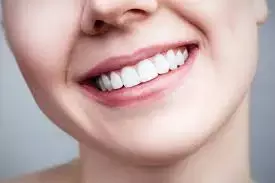- Home
- Medical news & Guidelines
- Anesthesiology
- Cardiology and CTVS
- Critical Care
- Dentistry
- Dermatology
- Diabetes and Endocrinology
- ENT
- Gastroenterology
- Medicine
- Nephrology
- Neurology
- Obstretics-Gynaecology
- Oncology
- Ophthalmology
- Orthopaedics
- Pediatrics-Neonatology
- Psychiatry
- Pulmonology
- Radiology
- Surgery
- Urology
- Laboratory Medicine
- Diet
- Nursing
- Paramedical
- Physiotherapy
- Health news
- Fact Check
- Bone Health Fact Check
- Brain Health Fact Check
- Cancer Related Fact Check
- Child Care Fact Check
- Dental and oral health fact check
- Diabetes and metabolic health fact check
- Diet and Nutrition Fact Check
- Eye and ENT Care Fact Check
- Fitness fact check
- Gut health fact check
- Heart health fact check
- Kidney health fact check
- Medical education fact check
- Men's health fact check
- Respiratory fact check
- Skin and hair care fact check
- Vaccine and Immunization fact check
- Women's health fact check
- AYUSH
- State News
- Andaman and Nicobar Islands
- Andhra Pradesh
- Arunachal Pradesh
- Assam
- Bihar
- Chandigarh
- Chattisgarh
- Dadra and Nagar Haveli
- Daman and Diu
- Delhi
- Goa
- Gujarat
- Haryana
- Himachal Pradesh
- Jammu & Kashmir
- Jharkhand
- Karnataka
- Kerala
- Ladakh
- Lakshadweep
- Madhya Pradesh
- Maharashtra
- Manipur
- Meghalaya
- Mizoram
- Nagaland
- Odisha
- Puducherry
- Punjab
- Rajasthan
- Sikkim
- Tamil Nadu
- Telangana
- Tripura
- Uttar Pradesh
- Uttrakhand
- West Bengal
- Medical Education
- Industry
Non-Diamond addition with decreased repair gap improves flexural and impact strength of repaired denture resin: study

Non-Diamond addition with decreased repair gap improves flexural and impact strength of repaired denture resin according to a recent study published in the Thieme.
This study aimed to evaluate the effect of nanodiamond (ND) addition to repair resin with repair gap modifications on the flexural and impact strength of repaired polymethylmethacrylate denture base.
Heat-polymerized acrylic resin specimens (N = 100/test) were prepared and sectioned to half creating two repair gaps: 2.5- and 0 mm with 45 degrees beveling. They were further divided into subgroups (n = 20) according to Non-Diamond concentration (control, 0.25%ND, and 0.50%ND), thermocycling (500 cycles) was done to half the specimens in each subgroup. Flexural strength was tested using 3-point bending test and impact strength was tested by Charpy's impact test. Analysis of variance and post-hoc Tukey's tests were performed for data analysis (α = 0.05). Scanning electron microscope was employed for fracture surface analysis and Non-Diamond distribution.
Results
- Before and after thermocycling, the addition of Non-Diamond significantly increased the flexural strength and elastic modulus in comparison to control group while 0 mm repair gap showed insignificant difference between Non-Diamond -reinforced groups
- Regarding impact strength, Non-Diamond addition increased the impact strength with 0 mm gap in comparison to control and 2.5 mm with ND while later groups showed no significant in between
- Comparing thermocycling effect per respective concentration and repair gap, thermocycling adversely affected all tested properties except elastic modulus with 0 mm–0.25 and 0 mm–0.5% and impact strength with 2.5 mm, 2.5 mm–0.25%, 2.5 mm– 0.5%
Non-Diamond addition combined with decreased repair gap improved the flexural strength, elastic modulus, and impact strength of repaired denture resin, while thermocycling has a negative effect on denture repair strength.
Reference:
Mohammed M. Gad , Mohamed Saber Ali, et al. Polymethylmethacrylate Incorporating Nanodiamonds for Denture Repair: In Vitro Study on the Mechanical Properties.
CC BY 4.0 · Eur J Dent 2022; 16(02): 286-295
DOI: 10.1055/s-0041-1735792
Keywords:
Non-Diamond, decreased, repair, gap, improves, flexural, impact, strength, repaired, denture, resin, Mohammed M. Gad , Mohamed Saber Ali , Ahmad M. Al-Thobity , Yousif A. Al-Dulaijan , Mai El Zayat , Abdel-Naser M. Emam , Sultan Akhtar , Soban Q. Khan , Fahad A. Al-Harbi , Shaimaa M. Fouda, thieme
Dr. Shravani Dali has completed her BDS from Pravara institute of medical sciences, loni. Following which she extensively worked in the healthcare sector for 2+ years. She has been actively involved in writing blogs in field of health and wellness. Currently she is pursuing her Masters of public health-health administration from Tata institute of social sciences. She can be contacted at editorial@medicaldialogues.in.
Dr Kamal Kant Kohli-MBBS, DTCD- a chest specialist with more than 30 years of practice and a flair for writing clinical articles, Dr Kamal Kant Kohli joined Medical Dialogues as a Chief Editor of Medical News. Besides writing articles, as an editor, he proofreads and verifies all the medical content published on Medical Dialogues including those coming from journals, studies,medical conferences,guidelines etc. Email: drkohli@medicaldialogues.in. Contact no. 011-43720751


